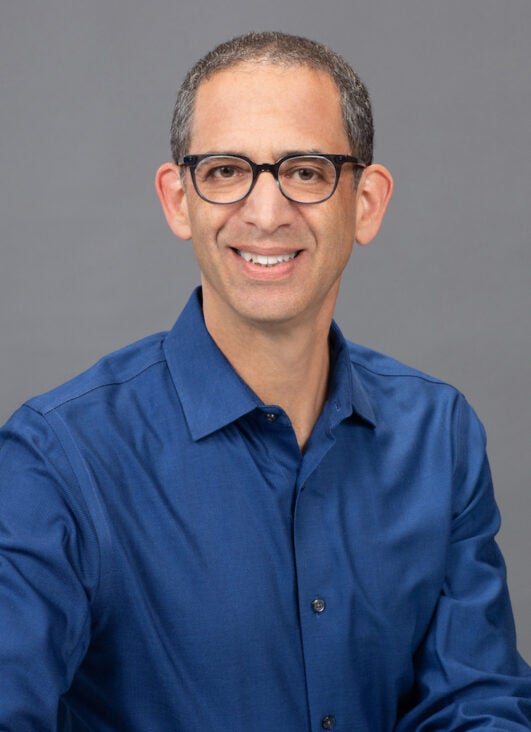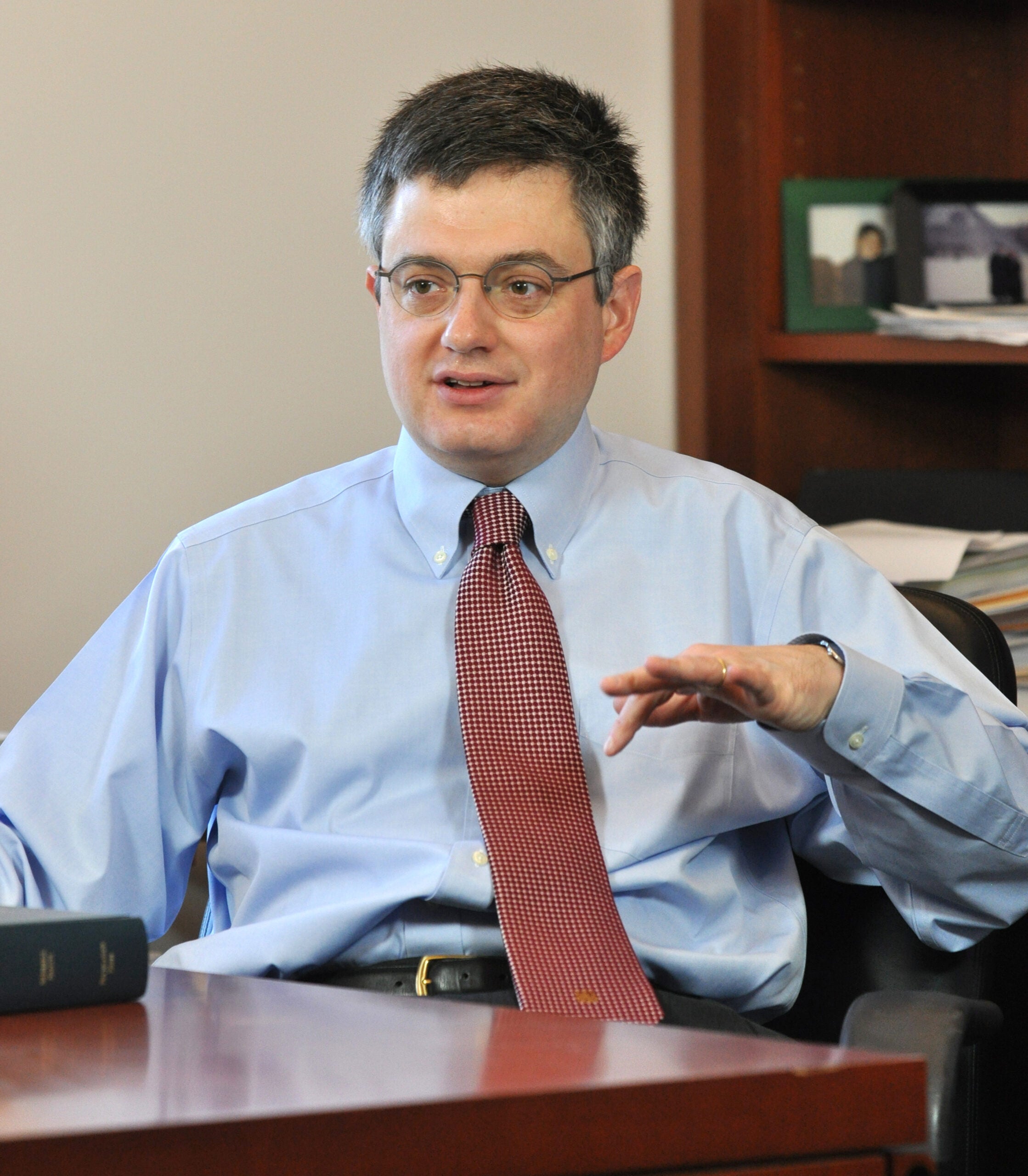HLS Professors John C.P. Goldberg and Henry E. Smith’s “New Private Law” blog launched recently in an effort to expand interest in the notion that traditional interpersonal law deserves a fresh look.
As the two professors describe it, “private law” is actually a well-understood catch-all phrase that encompasses the kinds of law that affect interactions between individuals and firms—contracts, torts, property law, etc.—as opposed to interactions between individuals and government. In coining the phrase “New Private Law,” they are advocating that these areas be examined in a new way and from a different perspective.

Goldberg points out that since the 1930s, legal academia has focused its interpretation of private law on its effect “to achieve some larger public good.” For an example, he said, the traditional view of tort claims has not been so much on how an individual might recover damages, but on the collective impact of such actions on society.
“The idea is that, yes, a plaintiff can get something, but they contribute something to the public at large because they’re really doing the bidding of all of us when they pursue these lawsuits,” he said.
At least in legal academia, he said, the prevailing view of individual tort actions is really an examination of how they make society safer as a whole.
Smith argues that it’s time for legal academia, at least, to provide a new—and at the same time perhaps more traditional—way of looking at these interactions.
“What we want to do here is put the notion of private law back on the table, to take seriously the structures of private law and to make it a serious subject of study,” Smith said.
He suggested that the examination may well uncover questions about whether or not old concepts might deserve resurrection.
“One of the interesting features about the de-emphasis on private law in American law schools is that whole aspects of private law have really fallen off the radar screen,” he said. “For instance, restitution, substantive equity, areas like that, are now sometimes taught in remedies classes but sometimes not at all. They were—and in actual life really are—an important part of private law, but we don’t cover them very well in law school.”
Although the blog is new, HLS has been devoting attention to the subject of private law since 2010, when Smith launched the Program on the Foundation of Private Law. The Foundation offers a fall workshop in which students hear presentations from outside speakers with drafts in process and write their own papers on selected aspects of private law.
The “New Private Law” blog is the first blogging venture for both Goldberg and Smith. They co-wrote the first post, in which they posited that the blog’s time had come because they had detected growing interest in the subject “and a corresponding resistance to the idea that private law has a particular political valence, or that it is simply a form of public, regulatory law.” Since then, they’ve assembled a group of 14 contributors, all of them professors or otherwise connected to legal academia.
To date, the blog has been attracting more than 1,000 visitors per month, according to Dr. Yonathan Arbel (SJD ’15) , a postdoctoral fellow with the Program on the Foundation of Private Law and one of the blog contributors. Although the blog focuses on American law, Arbel says that the readership is strongly international, with visitors from Australia, China, Israel, South Korea, Russia, and the U.K.
The scope of the posts has been diverse, ranging from “news of the day” analysis to more esoteric writings.
“Blogging is certainly a way of reaching different kinds of audiences and addressing different kinds of issues,” Smith said. “We think this is a subject that’s potentially interesting to the world at large but at least the legal world at large.”
To Goldberg, one of the blog’s goals is to mount an effort to shrink the gap between academic theory and actual practice.
“But whether it will make a dent in the world of traditional opinions and lawyering is hard to know,” he said. “We’ll just have to wait and see.”
WATCH: Martin Nowak and Michael Winston at the ISNIE Conference
The International Society for New Institutional Economics (ISNIE)—recently renamed the Society for Institutional and Organizational Economics (SIOE)—hosted its 19th Annual Conference June 18-20, 2015 at Harvard Law School. The program committee, chaired by HLS Professor Henry E. Smith, featured about 200 contributed papers in parallel sessions, and two keynote speeches (the conference website includes details on the program and papers).
The conference was sponsored by Harvard Law School through the Project on the Foundations of Private Law. In addition to the keynotes by Martin Nowak (Harvard) on “The Evolution of Cooperation” and Michael Whinston (MIT) on “Property Rights and the Efficiency of Bargaining,” the program included a number of panels that intersected with private law topics, including agency and fiduciary law, contracts, intellectual property, and property rights.
Visit the conference website for more information.
